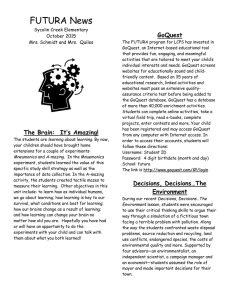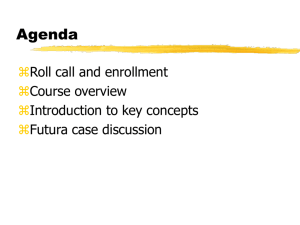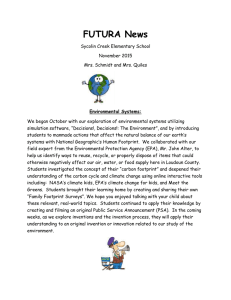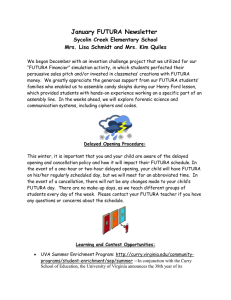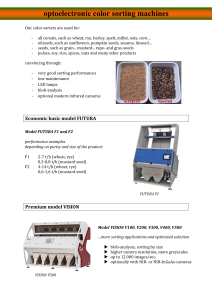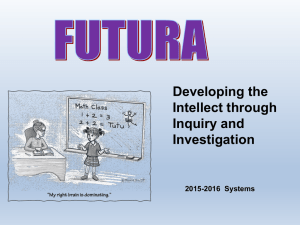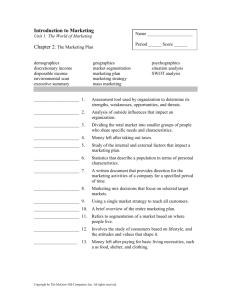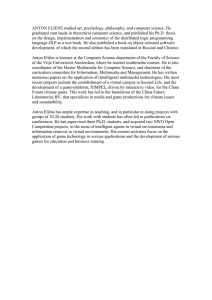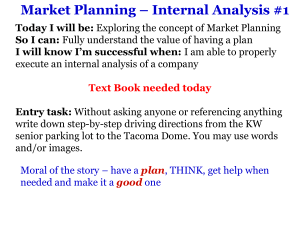Document 17573870
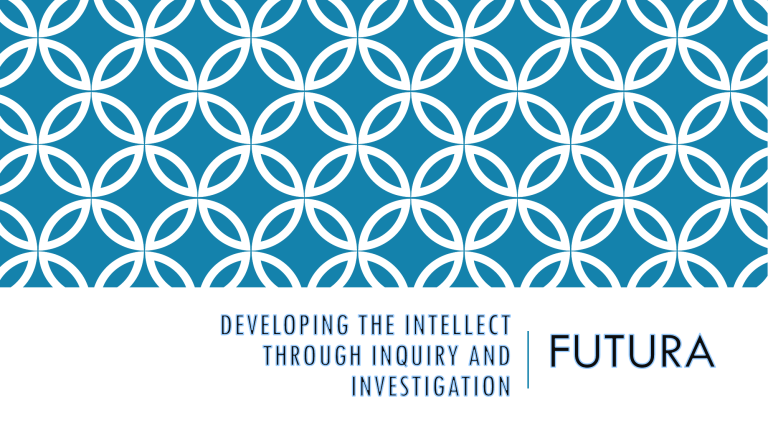
MEET THE TEACHERS
Mrs. Mapp
Ms. Skelly
BUFFALO TRAIL FUTURA CENTER
Monday – Little River 5 th Grade
Tuesday – Little River 4 th Grade
Wednesday – Buffalo Trail 4 th & 5 th Grade
Thursday – Cardinal Ridge 4 th Grade
Friday – Cardinal Ridge 5 th Grade
TRANSPORTATION
Morning: depart from home school at
8:45am and arrive at Buffalo Trail at
9:00am.
Afternoon: depart from Buffalo Trail at 1:45pm and arrive at home school at 2:00pm.
ATTENDANCE IS IMPORTANT!
If your child is going to be tardy, absent, or dismissed early please contact the base school and Buffalo
Trail Elementary at (703) 772-2780.
FROM THE CLINIC
• Student Profile/Emergency Information
• Health Concern Student Photo
• Health Care Plan
• Medication
LUNCH
Students may bring their lunch from home or buy at the FUTURA center.
Lunch accounts are interconnected with your child’s base school.
Please send your child with a nutritious and “nut free” snack.
TYPICAL DAILY SCHEDULE
• 8:45 Take Bus to FUTURA center
• 9:00 Arrive at FUTURA center
• 9:00-9:45 Critical/Creative Problem Solving
• 9:45-11:45 Class Systems Investigation
• 11:45-12:15 LUNCH
• 12:15-12:30 Recess
• 12:30-1:40 Interest Development Centers
• 1:45 Take Bus back to base school
HOMEWORK POLICIES
Regular Classroom Assignments
• Make-Up work Policy - Students have two days to make up any missed assignments. See the FUTURA Handbook for details.
FUTURA Extensions
• Continue FUTURA research
• Bring in materials for certain lessons
• Complete Go Quet extensions
BINDER & JOURNAL
Your child is responsible for bringing their binder and journal each week
Should stay organized.
Agendas - Communication is important in FUTURA
FUTURA
WHAT IS GO QUEST?
GoQuest is an internet based educational tool which provides fun, engaging and meaningful activities that are tailored to meet your child's individual interests and needs.
Students are to check their accounts at least once week outside of FUTURA class.
INTEREST DEVELOPMENT CENTERS
Goals:
To provide FUTURA students with opportunities to both satisfy and elicit their intense curiosity.
FUTURA students have the opportunity to choose activities based on interest and learning style while working at their own individual pace.
Students learn task commitment and time management skills.
Reflect on individual accomplishments and set goals.
WHAT DOES FUTURA STAND FOR?
F acilitating
U nderstanding
T hrough
U sing
R eal life
A pplications
EXPECTATIONS
• Have an acceptable level of productivity
• Development and use of planning strategies
• Utilization of problem solving techniques
• Application of core content learning through projects
• Flexibility and Critical thinking
• Collaboration with fellow students
• Perseverance and task commitment
• Maintenance of proper classroom decorum
FUTURA 2015-2016
SCHOOL YEAR CURRICULUM~SYSTEMS
Possible Topics of Study
Physics: Energy & Weather
Solar
Biology: Body & Genetics
Ecosystems
Government: Judicial
Culture
Economics
Mechanical: Electricity & Inventions
Communication: Language & Technology
Transportation
Throughout the Year
Research
Problem Solving
Critical Thinking
Creative Thinking
Evaluative Thinking
Deductive Thinking
Communication Skills
Analytical Skills
Application of Technology
ESSENTIAL UNDERSTANDINGS OF SYSTEMS
• Systems Have Function
• Systems Have Design
• Systems Have Boundaries
• Systems Can Change
• Parts of Systems Interact
PERFORMANCE ASSESSMENTS
1-6 scale
Sample is in the Resource section of their binder.
A performance assessment is given at the end of each semester. (late January and June)
Informal assessments are ongoing. These will be in your child’s FUTURA binder with major projects/centers work.
Students are often asked to complete self-assessments on various products. This allows them to reflect on their learning.
MINDSET
WHO IS CAROL DWECK?
• Stanford Professor and developer of the Mindset Theory
20
MINDSET THEORY
Fixed Mindset:
A belief system that suggests that a person has a predetermined amount of intelligence, skills, or talents
Growth Mindset:
A belief system that suggests that one’s intelligence can be grown or developed with persistence, effort, and a focus on learning
21
FEAR OF FAILURE
When does failure become the pathway to success?
The RESILIENCE to keep going,
The PERSISTENCE to try new and improved strategies,
The DETERMINATION to view failure as a path to new learning.
G : Get back up
R : Review the situation
I : Identify a new strategy
T : Try again
22
23
PARENT TIPS
Model Growth Mindset in our own lives
Ask kids, “When do you feel smart – when it’s easy or when you are learning?”
Praise effort and work habits, not ability or grades
Remember valuing speed and perfection can hinder difficult learning
Demonstrate the learning that can occur from mistakes/failures
24
FURTHER READING AND RESOURCES
Mindset: The New Psychology of Success by Dr. Carol Dweck
Mindsets in the Classroom by Mary Cay Ricci
Website: www.mindsetworks.com
Thanks to Ladona Gorham, Supervisor of Gifted Education and Special
Programs for Fauquier County Public Schools, for her contributions to this presentation.
25
PARENT CONFERENCES
Call Buffalo Trail Elementary
(703) 772-2780
E-Mail:
Natalee.Mapp@lcps.org
Alana.skelly@lcps.org
THANK YOU FOR YOUR SUPPORT
Questions?
